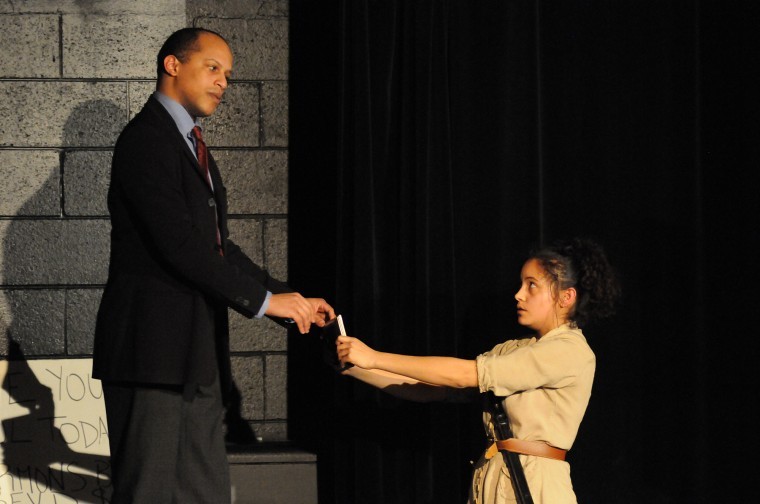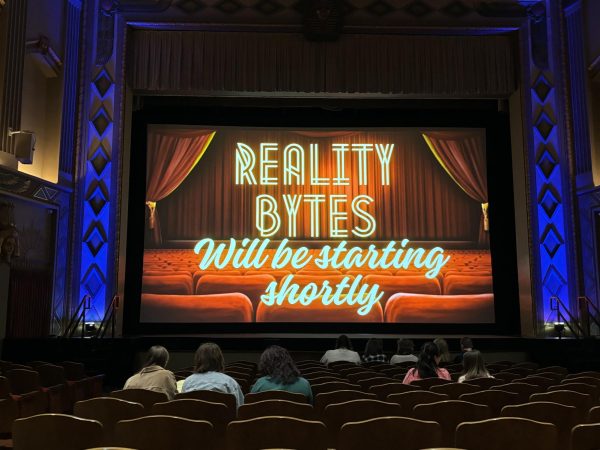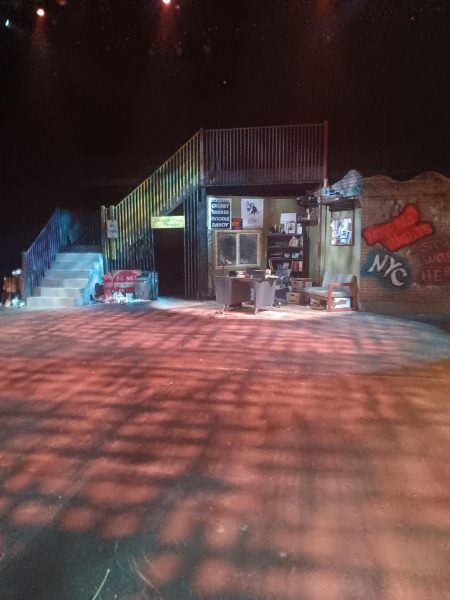‘In The Blood’ runs thick with realism
Cast members of ‘In the Blood’ perform Wednesday night. The show, which is an updated version of ‘The Scarlet Letter.’ begins its run tonight at 7 and continues through the weekend, ending with a matinee on Sunday at 2 p.m.
February 17, 2011
When I asked director Anthony Perella Jr. how he was going to be delicate about issues of gender, race and class in a play about a homeless African American mother of five, he said he wasn’t going to be sensitive.
In the Blood, a gritty tragedy by Suzan-Lori Parks, the first black female to win the Pulitzer Prize for Drama, is sexual, violent and above all real.
“I’m only being sensitive about one particular moment in the show because I feel that we can deliver that moment without having to shock people for the sake of shocking people,” said Perella. “There’s a very shocking moment written in the script and it’s very explicit and it’s very raw… I handled it to get every ounce of meaning and power and drama out of that moment without having to whip somebody’s d*ck out.
In the Blood, a modern translation of Nathanial Hawthorne’s The Scarlet Letter, follows Hester Negrita (Gabrielle Walsh, senior acting major) who is rejected by society to raise her five young children on the street. Looking for solace in medicine, the government, religion and marriage, Hester finds only exploitation from characters symbolic of each institution. The most obvious of these symbols is Welfare (Robinah Nambooze, sophomore acting major), Hester’s caseworker.
“Welfare as a character is kind of symbolic for part of the government systems that are given to us and the operators of those systems and how they sometimes deal with people,” said Walsh. “It reveals that bias and thought of the people working with people in need and how they feel that they’re not doing anything.
Aside from being a commentary on modern society, In the Blood is really an actor’s show. Every actor but Walsh doubles as both one of Hester’s kids and as a harmful adult in her life. By juxtaposing vastly different roles, the play really showcases each actor’s range.
Mark Gardner, graduate teaching assistant, gives a surrealistic performance as Hester’s overeager youngest child, adding an eerie depth to his second character, Reverend. Similarly, Caitlin Ewald, sophomore acting major, plays the innocent Beauty, further intensifying her role as the sexual Amiga.
In addition, the show has a multimedia spin, and each character appears on a TV in a documentary-style confessional, giving the audience a chance to see each actor’s on-camera performance as well. In one confessional, Welsh delivers a terrifying breakdown as an unstable Hester.
In the Blood is uncomfortable at times, and Perella often intensifies this by having scenes take place in every corner of the theatre, but the director insists that it’s uncomfortable because it’s real.
“It’s rated R because it’s real, not because it has explicit language but because the sh*t that it’s about is probably happening right now,” Perella said.












